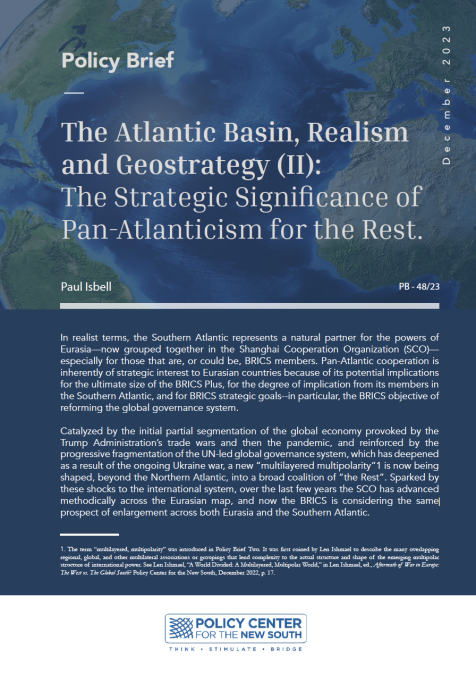Podcasts
Realism, Pan-Atlanticism and the Atlantic Basin
Related topics:
The Southern Atlantic is emerging as a pivotal region in global power dynamics, situated at the intersection of competing realist and liberal perspectives. Historically overlooked in favor of the Northern Atlantic, the Southern Atlantic now offers strategic significance in shaping the Atlantic Basin as a cohesive region. This area becomes crucial for both Northern Atlantic powers, like the United States and Europe, and Southern Atlantic states, such as Brazil and Angola, which navigate complex relationships with the BRICS bloc and Western alliances.
Realist perspectives emphasize the security, autonomy, and strategic hedging opportunities for Southern Atlantic nations. These states can leverage cooperation with both Northern Atlantic powers and the BRICS to increase their geopolitical influence and autonomy. Meanwhile, liberal ambitions for integration must contend with fragmentation and regional competition, highlighting a potential overlap between realist motives for state-centric power maintenance and liberal goals for broader cooperation.
Brazil, a key player, embodies the duality of alignment and independence, serving as a bridge between divergent blocs. Similarly, Angola and other African states illustrate the strategic balancing act, engaging with both Western and BRICS initiatives. These dynamics underscore the importance of redefining the Atlantic Basin not merely as a geographic space, but as a region central to the evolving global order.






